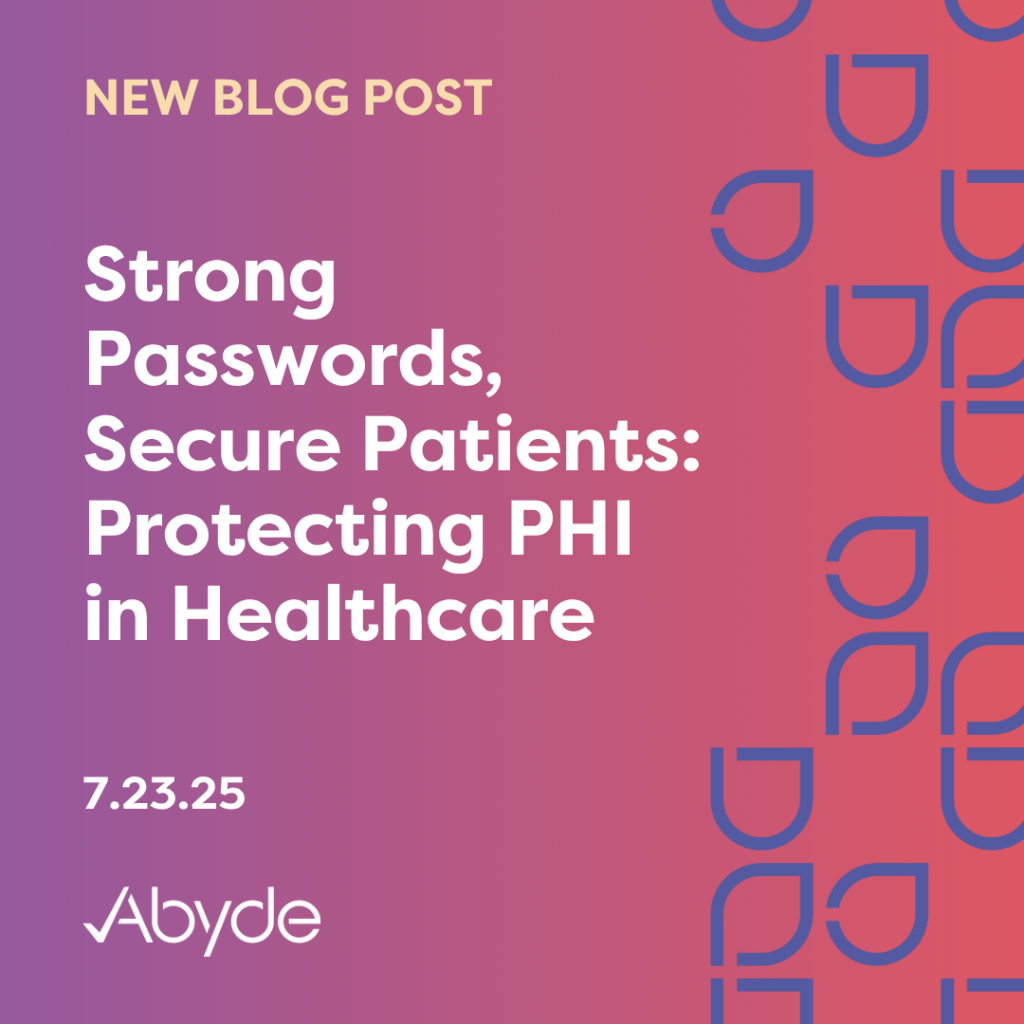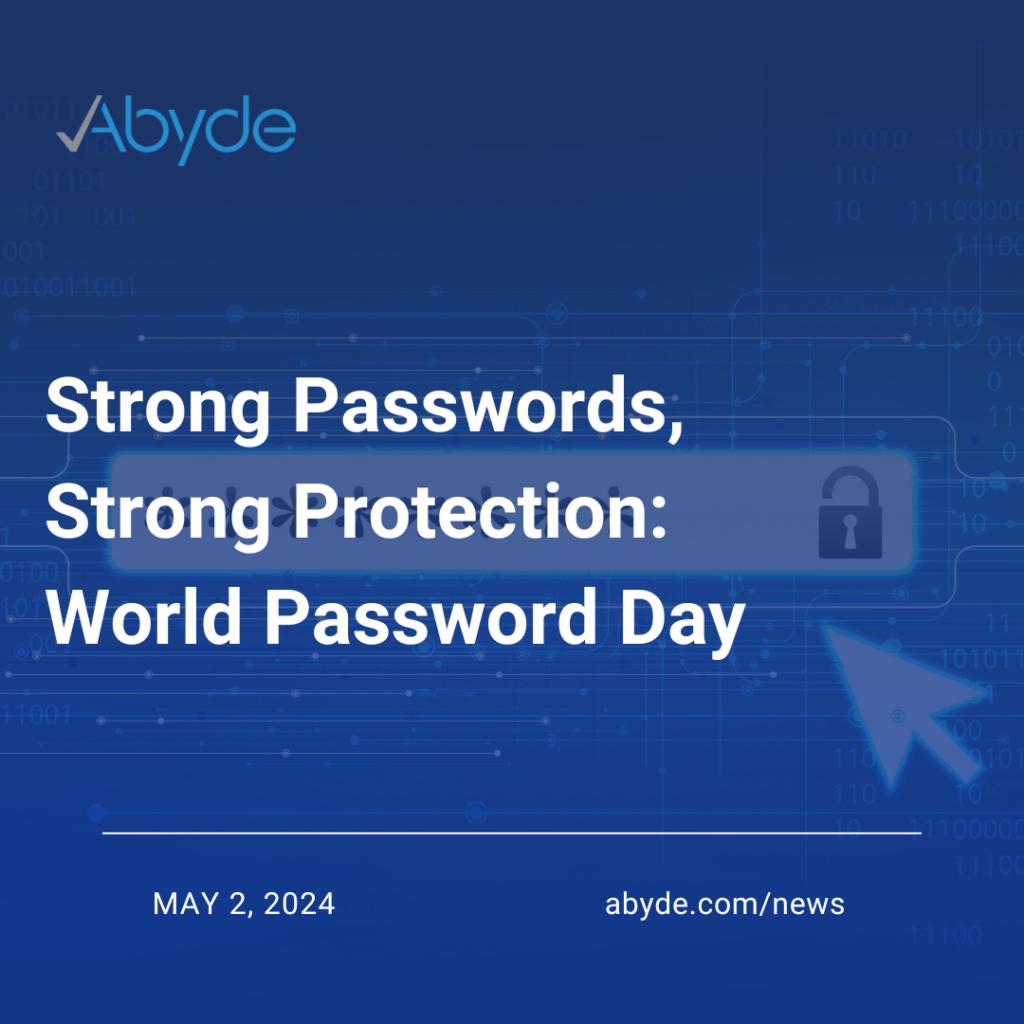July 23, 2025 While Password123 might be easy to remember, it might not be the best password. In our current healthcare landscape, intertwined with technology, from EHR systems to patient communication, it’s time to upgrade password security. A strong password and other layers of protection are key to keeping your practice’s logins secure and, ultimately, patient Protected Health Information (PHI). Thorough password management might be the deciding factor in stopping a major breach. Just look at the Change Healthcare debacle. Billions of dollars lost, systems crashed, insurance claims in limbo, and over 100 million patients exposed. At the root of this? Missing multi-factor authentication (MFA). After major breaches caused by poor password management, it’s time to prioritize your passwords and adhere to best practices. Ditch the Default Password Let’s face it. It’s tempting to use passwords everywhere. However, it’s a password security red flag. When it comes to passwords, we recommend at least eight characters with several unique characters, including a number, an uppercase letter, a lowercase letter, and a symbol. This enhanced security makes unauthorized account access more challenging. Also, if one account is compromised, the breach can be more easily contained than if all logins shared the same password. On that note, ensure all staff have their own logins. This isn’t just about stopping password sharing; it’s about giving your practice the power to keep a close eye on who’s accessing Protected Health Information (PHI) and quickly spotting anything out of the ordinary. When in Doubt, Change it Out We also recommend changing passwords at least three times a year, keeping account access current, and making unauthorized users’ access more difficult. Regular password changes help mitigate risk if an older password is exposed in a data breach, and make it harder for hackers to brute-force guess your password. They also ensure that anyone who has lost access to your accounts, such as offboarded staff, cannot continue to access systems. By consistently making password changes a part of your security routine, you create a dynamic defense that significantly reduces the risk of unauthorized access. Your Password’s Best Friend: Multi-factor Authentication On top of having a secure and current password, having MFA enabled on all your accounts is key to keeping PHI safe. Just like peanut butter and jelly, passwords and MFA are a perfect pair. MFA is that crucial next step, providing an extra layer of security that makes a major difference in keeping your information safe. Common MFA examples include a text, a random code generated, or even through an automated call. That extra protection ensures that the person logging in is authorized and authenticated. This extra level of protection ensures that when someone tries to log into your accounts, it’s truly you. It’s all about verifying and authenticating that the person accessing the account is authorized. With MFA enabled, a hacker won’t be able to log in without that unique code sent to your phone, an app, or even your email. This significantly increases the difficulty for unauthorized access, giving you peace of mind that your PHI remains secure. Securing your Compliance Program The sheer volume of tasks can make managing compliance feel like a full-time job, from multi-factor authentication to complex password policies and regular access reviews. While it’s easy to feel overwhelmed, your practice can streamline this with the right solution. Smart software simplifies compliance for your practice by sending out compliance reminders, such as when it’s time to change your password, providing best tips and practices, and automating policies and procedures for your practice. Meet with an expert today to see how you can streamline compliance for your practice.
Strong Passwords, Strong Protection: World Password Day
May 2, 2024 Happy World Password Day! To celebrate, let’s refresh your password etiquette. With the most recent updates on the Change Healthcare breach, you don’t want to miss this opportunity to do some compliance housekeeping! Let’s dive into how to ensure your passwords are HIPAA-compliant, keeping Protected Health Information (PHI) secure. Best Practices First, let’s say ‘sayonara’ to ‘Password123!’. When it comes to creating a secure password, length is crucial. Forget complex passwords with limited characters. Aim for at least 8 characters, using a mix of uppercase and lowercase letters, numbers, and symbols. This creates a longer and more challenging code to crack. Next, create passphrases instead of passwords. Consider using easy-to-remember passphrases instead. A good example would be including your favorite book or restaurant in a sentence. For example: “MyFavoritePlaceToE@tIsThaiGardenOn46thSt!” Lastly, make your passwords unique across different accounts. Beyond the Password Two is Better than One Now that’s settled, let’s dig into the additional security steps to keep your practice safe. Don’t shy away from Multi-Factor Authentication (MFA); it’s your friend. Enable MFA wherever possible, adding an extra layer of security by requiring a second verification step, like a code from your phone, to access accounts. Imagine MFA as a second line of defense in password security. When not used properly, it can leave an open door for cyber attacks. We’ve seen this play out in the news recently. On May 1st, Andrew Witty–Chief Executive Officer of UnitedHealth Group–testified in front of Congress regarding the Change Healthcare breach. Witty stated that the attackers successfully compromised a stolen user ID and passwords due to a lack of multi-factor authentication. This attack has cost Change Healthcare a whopping $870 million… and counting! To think, this whole issue could have been avoided if they took 5 minutes out of their day to implement practical password protocols… Password Powerhouse Consider ‘hiring’ a password manager! Using a password manager can provide peace of mind, knowing your passwords are secure. These tools generate strong, unique passwords and securely store them, eliminating the need to remember countless complex combinations. Just remember to use a strong master password for the manager itself! Finally, don’t forget to update your passwords at least three times a year and immediately if you suspect a security breach or phishing attempt. What’s Next? Think of password etiquette like flossing your teeth – not the most fun activity, but neglecting it can lead to painful consequences. That’s where Abyde can help simplify your practice’s everyday compliance needs. Abyde’s software offers an all-in-one suite of compliance resources with password and multi-factor authentication best practices training, on-call compliance experts, and much more. To learn more about compliance for your practice, schedule an educational consultation with one of our experts today!

